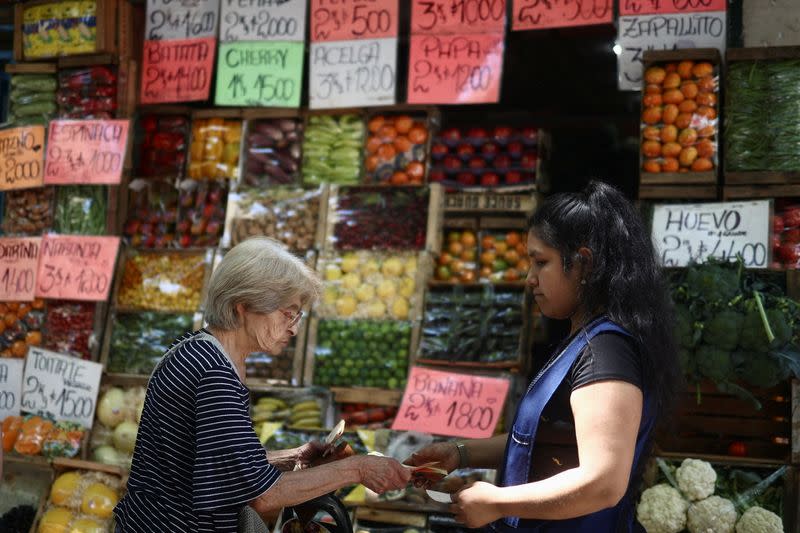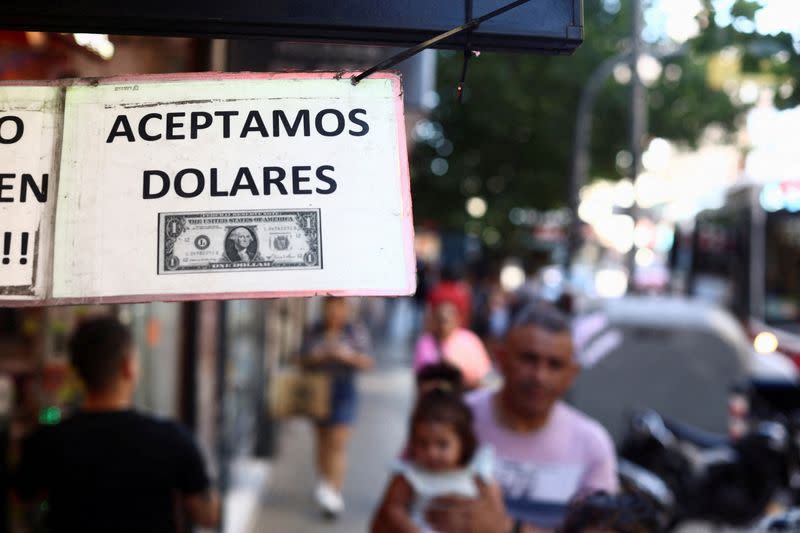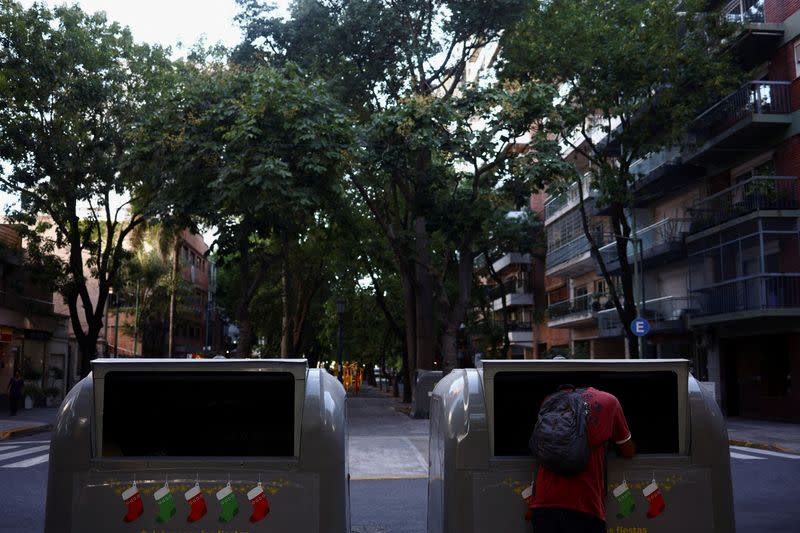'People are going to suffer': Argentines grapple with austerity shock
- Oops!Something went wrong.Please try again later.
By Claudia Martini and Lucila Sigal
BUENOS AIRES (Reuters) - On the streets of Buenos Aires, Argentines were starting to grapple on Wednesday with how they will be impacted by major austerity measures and an over 50% devaluation of the local peso currency, part of a shock plan to stabilize the economy.
The government of new libertarian President Javier Milei unveiled plans on Tuesday to slash state spending and turn around a deep fiscal deficit, moves that were cheered by markets. It devalued the peso currency sharply, which will stoke inflation already near 150%.
"The measures are good in theory to fix the economy but caught in the middle many people are going to suffer because of it," said Agustina Ferreira, 19, a shop worker in the Argentine capital.
Inflation is set to rise sharply in the months ahead, eroding people's savings and spending power. Planned cuts to subsidies will push up energy bills and transport costs, while the spending cuts will drag on economic growth.
The devaluation has overnight knocked over half the official value from people's pesos in dollar terms, though in reality tight capital controls already meant access to foreign currency was limited and people paid high rates on parallel markets.
Jose Diz, an agronomic engineer, said that tough government measures were "necessary," but the real-life impact would be difficult.
"Yesterday I was talking to my children at dinner and it's like being told that my salary is being cut in half," he said, adding that his family were already tightening their belts by buying fewer groceries. He worried about people living on pensions.
"I don't know how they're going to get by when costs of everything increase by 30% or 40%, it's very difficult."
'HARSH COSTS IN COMING MONTHS'
Milei, a political outsider who rode a wave of voter anger at the worst economic crisis in decades, has warned about likely 20%-40% monthly inflation in the months ahead, but said without tough measures the country could slip into hyperinflation.
He has repeatedly said that "there is no money," though he has pledged to protect some social spending in a bid to head off protests, with over four-in-10 people already in poverty.
"There will be some harsh costs in the coming months from a deepening of stagflation," said economist Gustavo Ber from consulting firm Estudio Ber, referring to a mixture of high inflation and recession.
Analysts say the biggest challenge to Milei will be keeping a lid on social unrest. Many Argentines, weary at years of boom-bust economic crisis, seem willing for now to give him time to turn things around, but their patience likely won't last long.
Facundo Marino, a 53-year-old worker in central Buenos Aires, said he backed the plan as necessary to avoid things getting worse.
But, he added: "It's a really deep shock for people's pockets, it destroys you."
"With the dollar at 800, bus tickets going from 50 to 500 (pesos)... everything increases," he said. "Either you hike salaries or I don't know what's going to happen to the country."
(Reporting by Claudia Martini and Lucila Sigal; Editing by Nicolas Misculin, Adam Jourdan and Rosalba O'Brien)




